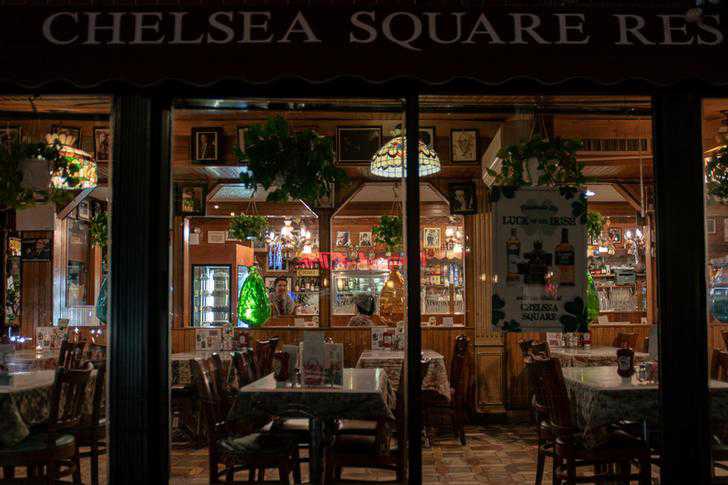NY, LA shut bars, restaurants, theaters, cinemas
16 March, 2020

Bars, restaurants, theaters and movie houses in NY and LA were ordered to shut down and several nations in South and Central America closed their borders in the most recent moves all over the world to combat the spread of the coronavirus.
The U.S. Federal Reserve slashed interest levels in an emergency move and other central banks took similar aggressive steps to cushion the monetary impact, but stock markets and the dollar continued to tumble on Monday.
Leaders of the G7 countries will hold a video conference on Monday to go over a joint response to the coronavirus outbreak, officials have said.
The coordinated policy actions were similar to the sweeping steps taken just over ten years ago to fight a meltdown of the global financial system, but this time the target is an totally unfamiliar foe - a fast-spreading health crisis without certain result in sight that is forcing entire societies to effectively turn off.
Several countries imposed bans on mass gatherings such as for example sporting, cultural and religious events to combat the condition which has infected over 160,000 people globally and killed a lot more than 6,000. France and Spain joined Italy in imposing lockdowns on tens of millions of folks while Australia ordered self-isolation of arriving foreigners.
New Zealand's central bank slashed interest rates by 75 basis points to a record low on Monday following an emergency meeting. The Bank of Japan said it'll hold a crisis meeting on Monday, instead of the March 18-19 scheduled one.
The BOJ and four other central banks cut pricing on the swap lines to make it easier to provide dollars with their financial institutions facing stress in credit markets.
"This cannot avoid the economical fallout from social distancing," said Ray Attrill, head of FX strategy at National Australia Bank in Sydney, discussing a method being utilized by many countries to try slow the spread of the virus.
"Which will require some fiscal spending and something from the government to make certain small companies are funded."
New York Mayor Bill de Blasio said on Sunday he was ordering restaurants, bars and cafes to only sell food on a take-out or delivery basis. He also said he'd order nightclubs, movie theatres, small theatre houses and concert venues to close.
"These places are section of the core of our city," he said. "But our city is facing an unprecedented threat, and we should respond with a wartime mentality."
NY also joined the country's other major public school systems in calling off classes starting this week.
LA Mayor Eric Garcetti issued similar orders later on Sunday. Any restaurant, bar or cafe selling food is only going to manage to do so via delivery or take-out, officials said.
BORDER CLOSURES
China, were the virus surfaced late this past year, said professional output contracted at the sharpest pace in 30 years in the first 8 weeks of the entire year as the disease disrupted the world's second-largest economy.
Nations in South and Central America ramped up measures to contain the infection, with Panama banning entry of non-resident foreigners and Honduras closing its borders to passenger traffic for weekly.
The leaders of Argentina and Peru also announced border closures on Sunday to curb coronavirus. Argentina will close its borders for 15 days to non-residents, President Alberto Fernandez said in a televised press conference.
Public and private school classes would also be suspended until March 31, Fernandez said. National parks will be closed.
Peruvian President Martin Vizcarra said later on Sunday that Peru would also close its borders, suspending air and sea transport. He called on citizens to self-quarantine for 15 days to greatly help slow the infection.
The U.S. containment measures have up to now been mild when compared to nationwide lockdowns imposed in Italy, France and Spain. However, Ohio and Illinois on Sunday ordered all bars and restaurants to close, although carry-out and delivery remain allowed.
Such measures were not enough to calm skittish investors. On Monday, E-mini futures for the S&P 500 index fell 4.77% to their daily trading limit beyond your United States.
MSCI's index of Asia-Pacific shares outside Japan slid 2.4% to lows not seen since early 2017, while the Nikkei eased 0.4%.
The dollar was last down 0.5% on the Japanese yen at 107.36, having fallen 1.7% earlier in the day.
"It may be a go in the arm for risk assets and help address liquidity concerns ... however, in addition, it raises the question of if the Fed has anything left in the tank if the spread of the virus not be contained," said Kerry Craig, global market Strategist at J.P. Morgan Asset Management.
"We should see the fiscal side ... to prevent an extended than needed monetary slowdown."
Source: japantoday.com
TAG(s):
